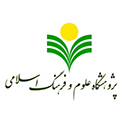Abstract:
زندگی پیامبر مانند دیگر موضوعات تاریخ اسلام همواره مورد توجه مستشرقان بودهاست. مستشرقان با انگیزههای استعماری، سیاسی و تبشیری و اغلب با پیشفرضهای منفی و نادرست درباره اسلام، قرآن، حدیث و سیره به بررسی تاریخ پیامبر پرداختهاند. سؤال اصلی پژهش این است که بروکلمان در کتاب تاریخ ملل و دول اسلامی با چه انگیزه و پیشفرضهایی به بررسی سیره پیامبر پرداخته است. بروکلمان آلمانیتبار در نیمه اول قرن بیستم کتاب تاریخ ملل و دول اسلامی را نوشته است. در این نوشتار با تحلیل محتوای این کتاب نشان داده شد که رویکردهای منفی و شبهه افکنی مستشرقان با گذشت زمان پیچیده و تلویحی شدهاست. بروکلمان با نگاه ضد ارزشی، جایگاه و اقدامات پیامبر را کوچک شمرده است. لذا شناخت دیدگاه مستشرقان برای مورخان مسلمان ضروری است تا با دقت بیشتری از این منابع استفاده کنند و در رفع چنین آسیبهایی اقدام کنند.
Like other topics of the history of Islam, the Prophet's life has been invariably noticed by Orientalists. Studying the Prophet's history with colonial, political, evangelistic, and often with negative and wrong presuppositions about Islam, the Qur'an, the Hadith and the prophet's conduct, they have approached this topic. The main research question is that what presuppositions about the Prophet's conduct have the German scholar Carl Brockelmann had in the first half of the 20th century in writing his book of History of Islamic Peoples and States? Having analyzed the content of this book, the researchers have focused on the negative and skeptic approaches adopted by orientalists which have become more complex and implicit by the pass of the time. Having a counterfactual view, Brockelmann has downgraded the Prophet's position and actions. Therefore, it is essential for Muslim historians to understand the views of Orientalists in order to use these sources more carefully and to take action to solve such problems.

(پژوهیار,
,
,
)

